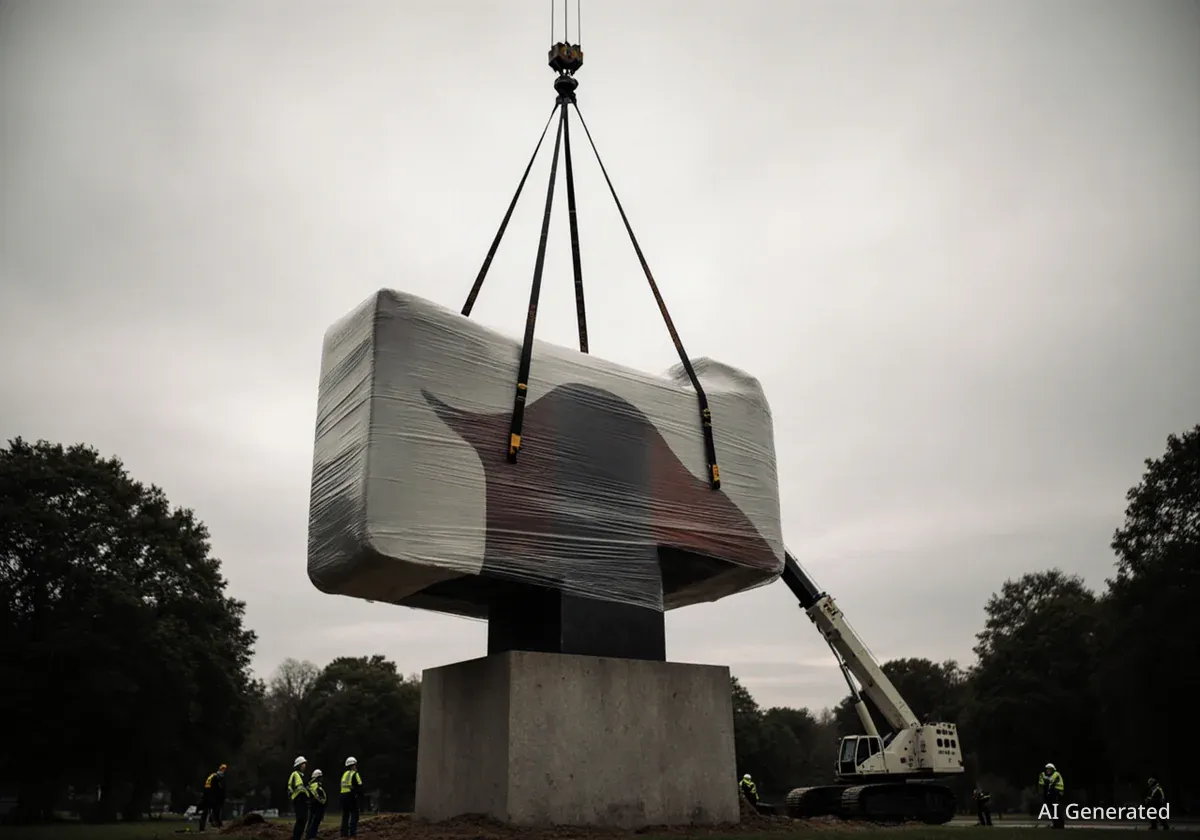Major cultural institutions across Mexico, including prominent museums in Mexico City like Palacio de Bellas Artes and Museo de Arte Moderno, unexpectedly closed last week. The closures stemmed from union demands concerning working conditions and uniform provisions for employees affiliated with Mexico’s National Institute of Fine Arts and Literature (INBAL). After two days of negotiations, the affected venues reopened to the public.
The incident highlighted long-standing issues within INBAL, particularly disparities between unionized staff and independent contractors. These disputes have been ongoing for years, fueled by budget cuts and structural challenges within Mexico's cultural ministry.
Key Takeaways
- Mexican museums, including Palacio de Bellas Artes, closed due to union demands.
- The closures lasted two days, from September 9 to September 11.
- Disputes focused on uniform procurement and broader working conditions.
- INBAL faces ongoing challenges with budget cuts and contractor treatment.
- Similar issues have affected other cultural institutions in Mexico.
Museum Closures and Quick Reopening
On September 9, cultural organizations under INBAL abruptly ceased operations. This included several of Mexico City’s most visited museums. The closures were a direct result of union actions. These unions were advocating for improved working conditions and specific changes to how uniforms were provided to staff.
The institutions remained closed on September 10. Intensive, closed-door negotiations between INBAL management and union representatives took place during this period. By September 11, an agreement was reached, and all affected venues reopened their doors to visitors.
"Some unions close cultural spaces to pursue their interests and exercise political influence, while Capítulo 3000 workers, often qualified experts in key roles, lack benefits and face delayed pay," explained a former INBAL worker who resigned due to the harsh conditions.
The Role of INBAL
INBAL plays a crucial role in Mexico’s cultural landscape. It oversees Mexican heritage from the 20th century onwards. The institute manages a wide network that includes 29 schools, 18 museums, and several theaters across the country. INBAL was established in 2015 under the Ministry of Culture. Its primary goal was to centralize cultural policy, a function previously handled by the Ministry of Education.
INBAL at a Glance
- Manages 18 museums and 29 schools.
- Oversees 20th-century Mexican heritage.
- Established in 2015 to centralize cultural policy.
Deep-Rooted Issues and Budget Constraints
The recent closures highlight systemic problems within INBAL and the broader Ministry of Culture. Budget cuts have significantly impacted these institutions. Projections indicate a 20% reduction for INBAL in 2026. These financial pressures, combined with long-standing structural issues, have weakened the cultural sector.
A source with direct knowledge of INBAL’s operations, who spoke anonymously due to fear of reprisal, stated, "The ministry was founded to restructure cultural organizations, yet it has failed to do so." This indicates a fundamental challenge in fulfilling its mandate.
Disparity in Working Conditions
A central point of contention is the significant difference in working conditions between unionized employees and independent contractors. Unionized workers often hold administrative and operational positions. They typically receive better benefits and job security.
In contrast, independent contractors, categorized as "Capítulo 3000," operate under temporary service contracts. These workers, often highly qualified experts performing essential roles, frequently lack basic benefits. They also face issues such as delayed payments and uncertain contract renewals. This creates a two-tiered system within the cultural institutions.
Understanding Capítulo 3000
Capítulo 3000 refers to a budgetary category for temporary service contracts in Mexico. Workers under this category are often independent contractors rather than permanent employees. They typically do not receive the same benefits or job security as unionized staff, leading to significant disparities in the workplace.
The Uniform Dispute
The immediate cause of last week's strike was a dispute over uniform procurement. Unions representing INBAL workers demanded a change in policy. They requested prepaid cards that would allow employees to purchase their own uniforms. This would offer more flexibility and ensure workers received garments that fit and were suitable.
According to a former INBAL worker, the previous system involved INBAL distributing pre-purchased garments. These uniforms were often "underused in the first place," suggesting inefficiencies and dissatisfaction among staff. The unions sought a more practical and empowering solution for their members.
INBAL representatives did not comment on the situation when contacted by The Art Newspaper.
Years of Unresolved Protests
The recent strike is not an isolated event. Capítulo 3000 workers have been vocal about their concerns for years, with protests dating back to at least 2018. They have used social media campaigns with hashtags like #YaPágameINBAL ("pay me INBAL") and #conTRATOdigno ("worthy contract") to raise awareness about their plight.
Despite promises of legal reforms and temporary solutions, significant progress has been slow. An open letter addressed to Mexican president Claudia Sheinbaum on September 11, signed by Capítulo 3000 workers, highlighted their ongoing struggles. The letter, quoted by the newspaper Excélsior, stated that many had not received payment since June. It detailed how they perform "essential work within INBAL, yet under schemes that deny us basic labor rights: no social security, seniority or benefits, and unguaranteed renewal."
- 2018: First recorded protests by Capítulo 3000 workers.
- June: Many Capítulo 3000 workers report unpaid wages.
- September 11: Letter sent to President Sheinbaum detailing lack of rights.
Wider Impact on Cultural Institutions
The issues facing INBAL are not unique. Other institutions dependent on the Ministry of Culture have also experienced similar disruptions. In June, workers at the National Institute of Anthropology and History (INAH) closed venues like the Museo Nacional de Antropología. This closure was due to a shortage of contracted security personnel, highlighting a common problem across the sector.
Just recently, on September 11, unionized workers initiated a two-day closure of the Biblioteca Vasconcelos. This is considered the country’s most important library, housing significant cultural works. The library, part of the General Directorate of Libraries under the Ministry of Culture, faced closure partly due to shortages of basic necessities like water, further illustrating the widespread nature of these challenges.
Funding and Museum Fees
On September 9, the culture ministry announced an increase in museum fees for 2026. This sparked immediate controversy before the ministry clarified that the increase would apply only to non-residents and INAH sites. However, museum fees, even during major exhibitions, do not directly fund museum operations. Instead, these revenues go to the Federal Treasury.
A source familiar with INBAL’s budget noted, "INBAL’s museums do not benefit from ticket revenue generated by their efforts." This means that despite generating income, the institutions themselves do not see direct financial support from ticket sales, exacerbating funding difficulties.
Concerns for the Future of Mexican Heritage
Observers within the arts and culture sector express growing concern that these ongoing labor and funding disputes could have severe long-term consequences. The workers responsible for maintaining Mexico’s world-renowned collections and delivering cultural programs are increasingly feeling burnt out and unsupported.
A source who experienced these conditions firsthand warned of a "talent drain from INBAL due to excruciating working conditions impacting physical and mental health." This not only harms the individuals involved but also poses a significant risk to the preservation of cultural heritage. The source added, "This also endangers heritage as it is left in underqualified hands," underscoring the critical need for sustainable solutions to these deep-seated problems.




